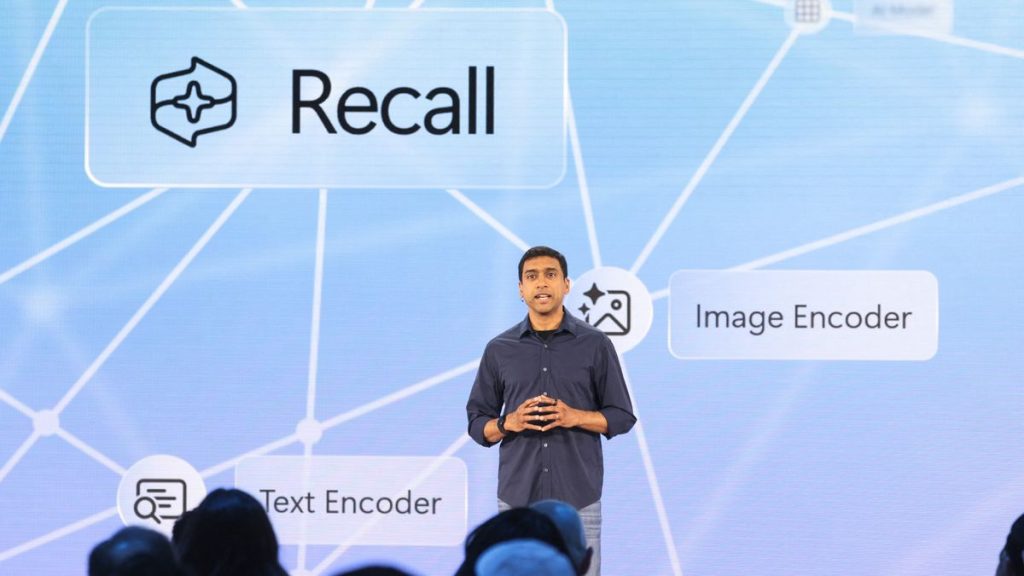Microsoft Revamps Controversial AI Screenshot Tool Amid Privacy Concerns
3 min read

Microsoft is set to reintroduce its AI-powered screenshot tool, previously criticized as a potential “privacy nightmare.” The company announced that it has addressed user feedback after the tool’s initial unveiling in May 2024, which raised significant privacy concerns. Following this backlash, Microsoft decided to postpone the tool’s release.
Now, the tech giant plans to launch the revamped version, named Recall, in November as part of its new CoPilot+ computers. This new iteration comes with important changes: it will be an opt-in feature rather than being enabled by default, a move designed to address earlier criticisms.
The controversy surrounding Recall had prompted the UK’s Information Commissioner’s Office (ICO) to investigate the tool. The ICO stated it has been in discussions with Microsoft and confirmed that the company has made a “series of changes” to enhance the product’s privacy measures. The ICO plans to continue monitoring Recall as Microsoft approaches the launch date.
When Microsoft first introduced Recall at its developer conference, it touted the tool as a means of achieving an “online photographic memory.” The tool was designed to utilize AI to allow users to access virtually any content they had previously viewed on their PCs. Recall aimed to simplify the process of finding past files, photos, emails, and browsing history by taking screenshots every few seconds.
Despite these ambitious claims, critics quickly expressed concerns over the volume of sensitive data that the tool would collect. One expert labeled it a potential “privacy nightmare,” highlighting the risks of constant monitoring and data harvesting. Consequently, Recall was never made publicly available at its initial launch.
Initially, Microsoft planned to roll out Recall alongside its CoPilot+ computers in June, which the company advertised as the fastest and most intelligent Windows PCs ever created. However, due to the backlash and further considerations about user privacy, the launch was postponed until autumn.
With the upcoming release, Microsoft has introduced additional security features. According to Pavan Davuluri, Microsoft’s corporate vice president of Windows and devices, Recall will now be an opt-in experience. He emphasized that any screenshots and associated data will always be encrypted. Moreover, users will have access to tools that allow them to control their privacy settings and customize what information gets saved for future reference.
However, a technical blog about Recall notes that “diagnostic data” may still be shared with Microsoft, depending on individual privacy settings. Additionally, screenshots can only be accessed via biometric login, and sensitive information such as credit card details will not be captured by default.
Recall is specifically designed for the CoPilot+ range of laptops, which feature advanced built-in AI chips aimed at improving performance.
Professor Alan Woodward, a cybersecurity expert at Surrey University, acknowledged that the changes Microsoft has made are a significant improvement. However, he stressed the importance of thorough testing of security and privacy measures before widespread deployment. “Before any functionality like Recall is deployed, the security and privacy aspects will need to be comprehensively tested,” he remarked.
Despite these improvements, Professor Woodward indicated that he would not rush to use the tool himself. “Personally, I would not opt-in until this has been tested in the wild for some time,” he said, reflecting a cautious approach among many experts and users alike.
As Microsoft prepares to relaunch Recall, the company faces the dual challenge of providing a useful tool while safeguarding user privacy. The upcoming changes indicate a commitment to addressing past concerns, but skepticism remains. As technology continues to evolve, the balance between innovation and privacy will be critical, and users will undoubtedly be watching closely to see how Recall performs in practice.